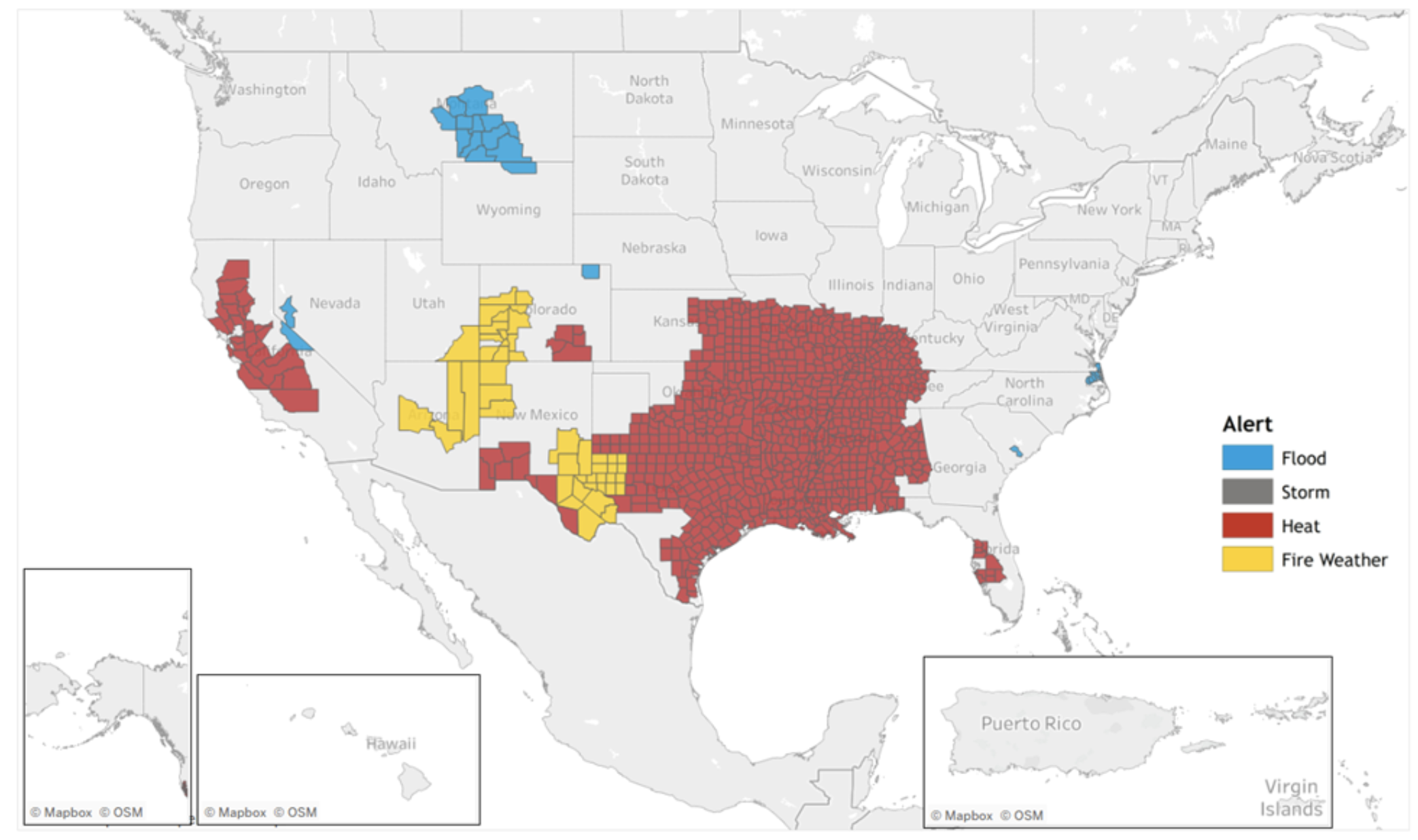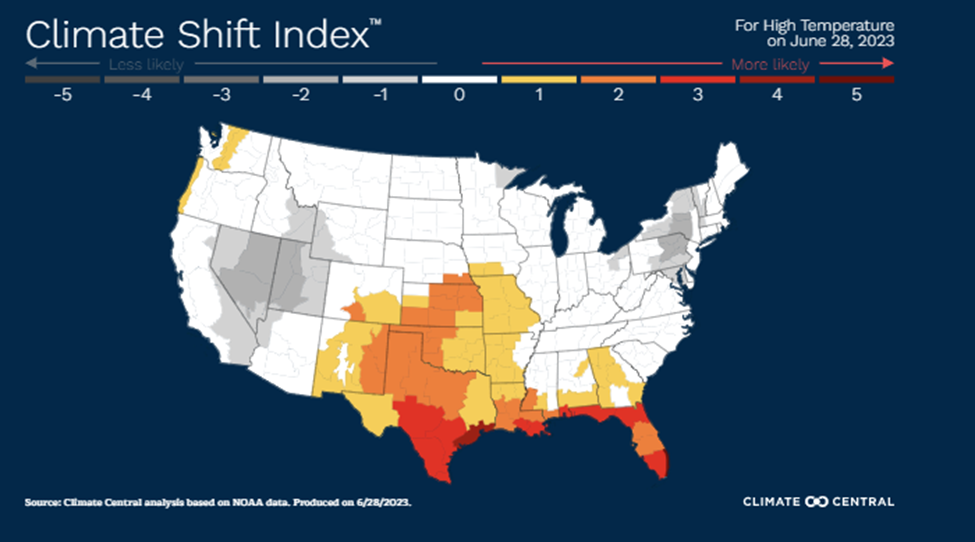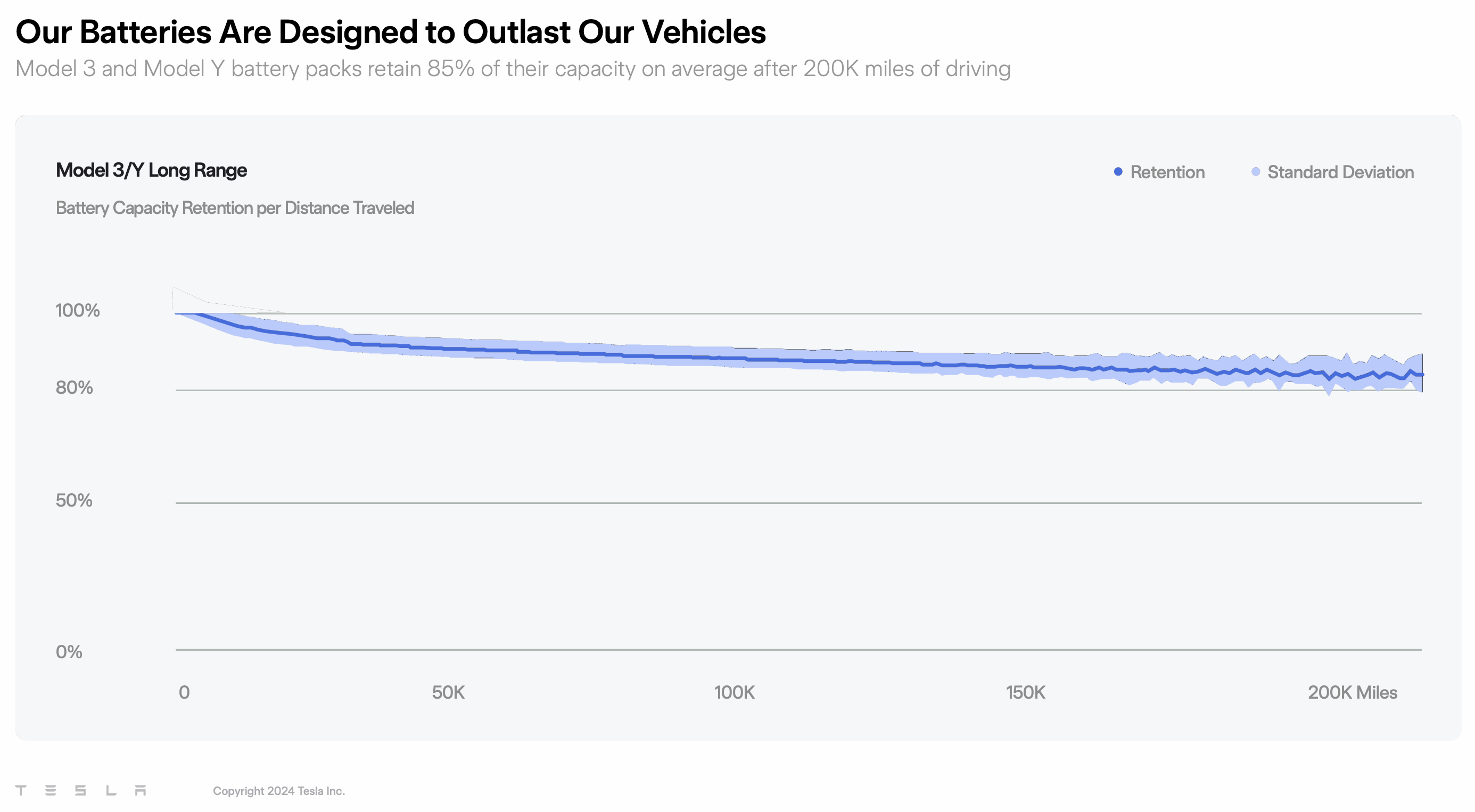
Today climate change has broken a new Danger Season record: 76 million people in the US — or 23% of the total population — are currently under extreme weather alerts, including alerts for heat, flooding, storms, and wildfire weather conditions. Almost all of those alerts — impacting 75 million people — are for extreme heat covering most of Texas, Oklahoma, Missouri, and Alabama, and all of Arkansas, Mississippi, and Louisiana. Several counties in California, Colorado, Florida, New Mexico, Illinois, Indiana, Kentucky, and Tennessee are also under extreme heat alerts. And, notably, our tally does not include the millions of additional people across the Northeast and the Midwest who are experiencing poor air quality due to wildfire smoke from Canada.

Widespread heat alerts cover parts of the US South and Midwest regions on June 28, 2023. Source: dangerseason.ucsusa.org
The cumulative number of people that have faced at least one alert since the start of Danger Season on May 1 today is 61%, up from 52% percent barely two weeks ago. And the footprint of climate change is all over this heat: as of June 28, 22% of heat alerts since the start of Danger Season would not have been possible without climate change, according to Climate Central’s Climate Shift Index (CSI).
This is serious: today marks the 1st day of #DangerSeason that more than 10% of the US pop. faces #ExtremeWeather alerts. 40% of those folks live in areas designated as disadvantaged.
This is global: RIGHT NOW, Cyclone Biparjoy is hitting India & Pakistan https://t.co/stkCawQ7Pq
— Union of Concerned Scientists (@UCSUSA) June 15, 2023
Today’s CSI shows that high temperatures are between one and three times more likely due to climate change, with stronger climate attribution (that is, higher CSI values) along the Gulf Coast.

High daily maximum temperatures on June 28, 2023 are attributable to climate change. Source: Climate Central’s Climate Shift Index (https://www.climatecentral.org/tools/climate-shift-index)
As climate change shifts global air and ocean temperatures warmer, the likelihood of experiencing extreme heat events like this one increases. By midcentury, with no action to address global heat-trapping emissions, much of the region experiencing triple-digit temperatures this week would see a tripling of the frequency of such heat.

The current heat dome hovering over North America has been increasingly exposing millions of people in the US to extreme heat since June 23, 2023. Source: Union of Concerned Scientists
Today’s air quality alerts across the Midwest are also part of a troubling trend. While we usually associate the impacts of wildfires with states in the western US, where wildfires have grown increasingly large and severe in recent decades, data show that over the last 15 years or so, the Midwest and Eastern US have experienced increases in the frequency of “smoke days” like those their experiencing today.
An onslaught of seemingly unending extreme weather events threatens the US population, and there are still four months of Danger Season to go. We need action now to reduce climate change-causing emissions and also adaptation policies to protect people from the impacts we cannot avoid.
Danger Season is here and clearly demonstrating we are heading into uncharted climate disaster territory.
Originally published by Union of Concerned Scientists, The Equation. By Juan Declet-Barreto.
I don’t like paywalls. You don’t like paywalls. Who likes paywalls? Here at CleanTechnica, we implemented a limited paywall for a while, but it always felt wrong — and it was always tough to decide what we should put behind there. In theory, your most exclusive and best content goes behind a paywall. But then fewer people read it! We just don’t like paywalls, and so we’ve decided to ditch ours. Unfortunately, the media business is still a tough, cut-throat business with tiny margins. It’s a never-ending Olympic challenge to stay above water or even perhaps — gasp — grow. So …




